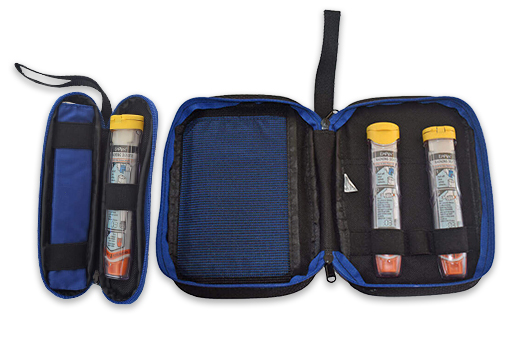Placing your child in the care of others can be challenging for any parent, even more so if your child has severe allergies and may need anaphylaxis first aid.
While it’s a comfort that teachers and daycare staff are expected to be trained in preventing anaphylaxis and giving EpiPen, here’s a checklist that may help give you added confidence about your child’s safety while at school, preschool or daycare.
1. Does your child know their allergies?
Ask your child’s doctor to explain your child’s allergies in age-appropriate language. You can reinforce this information at home. Depending on their age, it may be helpful to roleplay scenarios. For example, declining food offers from schoolmates or confidently telling a teacher they must stay away from bees buzzing around the canteen bins. View more information about common allergy triggers and advice on how to avoid them.
2. Does your child know what to do after exposure?
Remind your child to err on the side of caution and immediately tell someone nearby, preferably a teacher or another adult, if they feel unwell or are worried about being exposed to one of their allergy triggers. Remember to reassure them that they will never get into trouble because of their allergies, even if they have broken a school rule. Watch our Real Life video about Margot, who ate nuts by mistake and was afraid to tell anyone.
3. Have you informed the principal about your child’s allergies?
Your child’s principal, head of day care and class teacher are likely to have received training in allergy avoidance and anaphylaxis first aid. Therefore, they expect to hear directly from you if your child has been prescribed EpiPen. It’s a good idea to reach out before the start of every school year in case of staff changes and to ensure that your child’s welfare is always top of mind.
4. Provide EpiPen Auto-Injectors to the school
Every child who has been prescribed EpiPen should have at least one device available for use while they are at school. Parents of younger children usually hand a device over to the school for emergencies. Parents of older children should lodge a device with the school, even if they decide that their child can safely and reliably carry EpiPen with them. Register all your child’s devices on MyEpiPen to ensure you receive timely reminder notices. Click here to login or register.
In addition to your child’s EpiPen, every educational institution should have at least one general-use adrenalin auto-injector readily available. These should be accompanied by an orange ASCIA First Aid Plan for Anaphylaxis to guide people through anaphylaxis first aid.
5. Have you provided copies of your child’s updated ASCIA Action Plan to the school?
Many schools work with parents to complete an anaphylaxis care plan based on your child’s ASCIA Action Plan for Anaphylaxis. This will document risk-minimisation strategies to help keep your child safe at school and during excursions and other activities.
You should at least provide the school with a copy of your child’s most recent individualised red ASCIA Action Plan for Anaphylaxis. The plan is a medical document that includes information about your child’s allergies and gives instructions for first aid treatment.
The school should keep a copy with your child’s EpiPen, on their file and anywhere else it may be needed. In addition, older children should keep a copy with their devices. It’s a good idea to ensure that the copy you provide has an updated picture of your child so that they are easily recognised in an emergency.
Download an ASCIA Action plan for your child’s doctor or nurse to fill in.
























